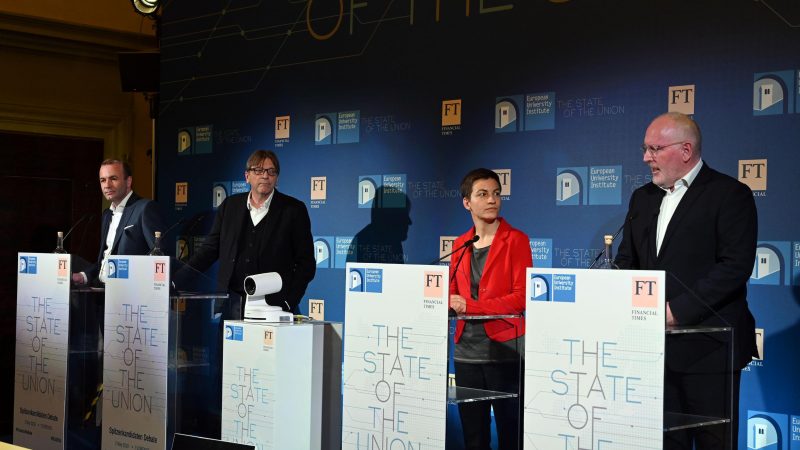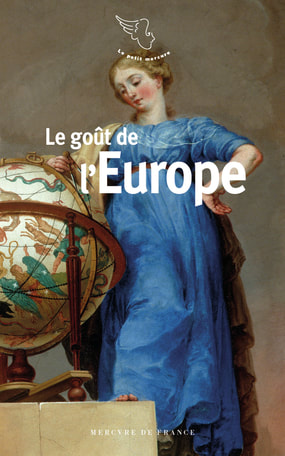|
Without knowing the outcome of the next European Parliament (EP) elections, or the name of the future President of the European Commission, we can already affirm that the Spitzenkandidat system has failed. Most of the debate has focused on whether the European Council will again accept to nominate the lead candidate of the EU-level party that wins the most seats in the EP on 26 May. This focus presents the Spitzenkandidat as an elitist game that pits the European Council against the EP, and the European People’s Party (EPP), which supports the Spitzenkandidat process, against the Alliance of Liberals and Democrats for Europe (ALDE), which attacks it. This approach misses the point.
Originally, the Spitzenkandidat idea was not intended simply to redistribute power among institutions and parties, but to contribute to the democratisation of the EU. By indirectly electing the President of the European Commission through the EP elections, citizens were meant to gain influence over EU decisions. By focusing attention on an EU-level competition, the procedure was supposed to Europeanise the campaign, making the voters’ verdict more coherent and more powerful. None of these objectives has been achieved. EP elections are still a collection of national elections, which involve national parties promoting national manifestoes and national-level lead candidates. Only in their home states are Spitzenkandidaten really put in the spotlight. Besides, the main Spitzenkandidaten are selected by their EU-level party through elitist procedures involving only party officials. Whatever the outcome on 26 May, EU citizens will not have voted for a Commission President, even indirectly, and EP elections will not produce an EU-level popular mandate. The idea of establishing a transnational constituency for EP elections, in addition to existing national constituencies, aimed to give more visibility to the Spitzenkandidaten. However, the proposal was voted down last year by the EP, not only because the EPP saw it as a threat to its dominant position, but also because representatives of smaller member states feared that it would work against them. Indeed, in transnational lists, EU-level parties would likely have put representatives of bigger member states in top positions, thus affecting the balance among nationalities within the EP. Transnational lists for EP elections would also generate complexity. For example, if one party wins the most transnational seats while another party wins the most seats overall, two different Spitzenkandidaten could claim to have received a mandate to lead the Commission. Those who believe in EU democratisation should learn from these failures. Trying to make EP elections produce an EU-level popular mandate has proven an impossible task because the EP primarily consists of national parties, focused on their own political interests. Why not create a transnational constituency to elect, not the EP, but the Commission itself? The full college of commissioners (one per country) would be elected through general ticket representation. The list that comes first would be elected en bloc. Compared with the Spitzenkandidat system, this procedure would have the advantage of circumventing national parties by establishing a truly EU-level competition. Instead of relying on one Spitzenkandidat coming from one member state, each list would promote 27 candidates coming from all member states. Thus, unlike transnational lists in EP elections, the direct election of the Commission would not affect the balance of national origins in EU institutions. A directly elected Commission would break the myth that the EU could become a nation-state-like parliamentary system, with a government emanating from a parliamentary majority. However, such a system would require strongly unified EU-level parties. The logic of the EU regime is actually much closer to that of ‘checks and balances’ among independent institutions, the Council, the EP and the Commission, each having its own source of legitimacy and its own say in the legislative process. Certainly, such a reform would be opposed by national leaders and the EP because it would take away their power to bargain over the formation of the Commission. But isn’t this exactly the point of democratisation: empowering the people at the expense of elitist backroom deals? At a time when far-right parties are developing transnational alliances and claiming that they will soon be strong enough to transform the EU according to their values, democrats should not entrap themselves by defending the status quo. They should dare to articulate their ambition: a fully democratic Union. Comments are closed.
|
My name is Pierre Haroche and I am a specialist in European integration and European security.
In this blog I present my thoughts on EU democracy, defence and identity. If you are interested in my proposals, do not hesitate to get in touch! My book (in French) is a commented anthology of literary texts on the idea of Europe, since Antiquity.
Writers, before politicians and civil servants, have made Europe by invoking it. They made it through their vision, their sensitivity, their taste. Europe is an entity that cannot be reduced to the sum of its parts, but encompasses them. From ancient myths to contemporary issues, a journey through an uncertain continent in the company of Hesiod, Ovid, Victor Hugo, Fyodor Dostoevsky, Thomas Mann, Stefan Zweig, Henry James, Albert Cohen, Aurélien Bellanger, Orhan Pamuk, Laurent Gaudé and many others. |
Proudly powered by Weebly



